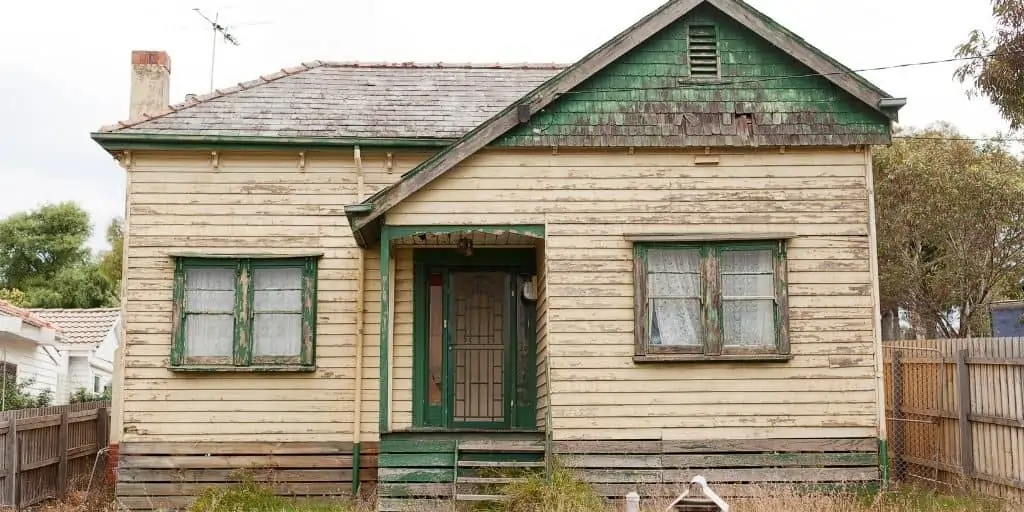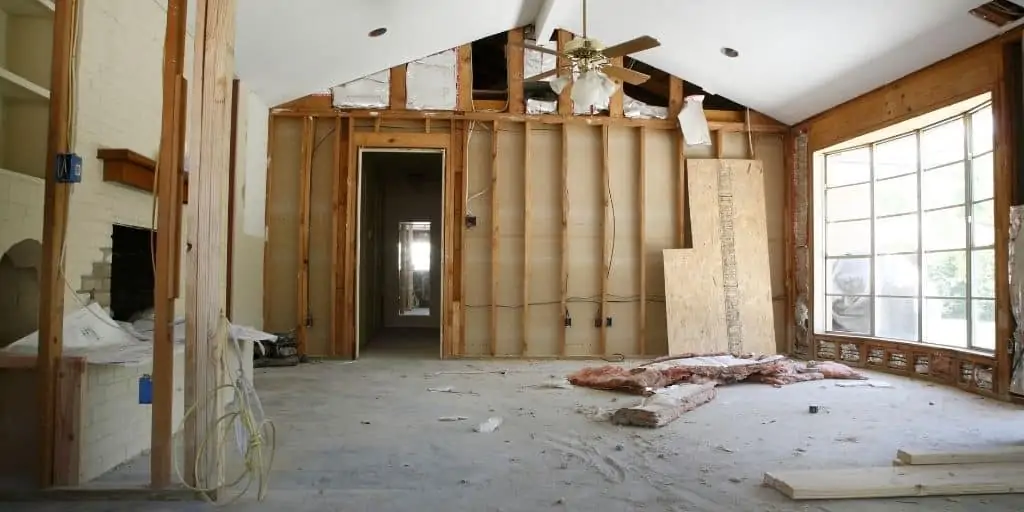What Is a Zombie Foreclosure?
REtipster does not provide legal advice. The information in this article can be impacted by many unique variables. Always consult with a qualified legal professional before taking action.
How Does a Zombie Foreclosure Happen?
A zombie foreclosure usually happens when a homeowner misunderstands how the foreclosure procedure works. In other words, the homeowner incorrectly assumed that they must leave immediately (and that the lender would automatically take over the vacated property) as soon as they have received a foreclosure notice.
However, this notice only indicates the beginning of a waiting period, which provides the homeowner time to make a sufficient payment to stop the foreclosure. The required payment should cover either mortgage arrears or the total balance of the loan. The foreclosure process moves forward only when the homeowner does not make the needed lump-sum payment.
If the homeowner permanently leaves the property and runs away from the financial obligation, the lender may not act to complete the foreclosure process.
The lender may do nothing to keep it from having a low-value property on its books. Another reason the lender may not take the title to the property is to avoid the financial obligations and liability of owning it.
As a result, the property becomes a “zombie,” which is neither “alive” nor “dead.” It is stuck in a limbo of a canceled or unfinished foreclosure. And its ownership does not change without the knowledge of the homeowner.
The lender does not have to notify the homeowner about the situation, so the latter can remain clueless about the situation for a long time.
Impact of a Zombie Foreclosure
A homeowner who suddenly abandons their property affects the surrounding community and the homeowner themselves in different ways.
How Zombie Foreclosure Affects the Homeowner
More than anyone, the homeowner, the official custodian of a zombie property, is the ultimate victim of a zombie foreclosure.
Since the homeowner’s name is still on the title, this person remains responsible for its upkeep and associated costs, even if they are not present on the property.
The homeowner may not realize the consequences of vacating their property before the actual foreclosure process right away. However, the issue may arise months or years later, following the homeowner around until it is addressed and resolved properly.
Here are the likely effects of being the owner of a zombie property.
- Unpaid property taxes. A homeowner’s tax liability does not disappear after abandoning their property. The taxing authority could decide to hold a tax sale[1], selling either the deed to another party or the tax lien (or the right to collect outstanding debt plus interest and penalties).
- Delinquent homeowners’ association dues and assessments. HOA dues and assessments[2] are every member’s financial obligations. In a small HOA, a single delinquent member could hurt the association’s budget significantly. So, everyone’s share is needed to fund an HOA’s day-to-day operations and unexpected expenses. To collect, an HOA might take legal action against a delinquent member. It is not uncommon for an owner of a zombie property to be the target of a lawsuit.
- Fines for building code non-compliance. The town or the city may penalize a homeowner who does not bring their property up to code. Even an overgrown yard or a stagnant pool may raise the ire of municipal officials.
All of these consequences could affect a homeowner in various ways over the long term.
How It Affects the Community
A zombie property can drive down the values of homes surrounding it. Any neighbors who want to sell their property or cash in some of their home equity[5] would feel the financial effects of living near a zombie property.
Here are some reasons a zombie foreclosure can harm the perception of a neighborhood (or at least part of it):
- Emptiness. The area surrounding a zombie property feels less homey. Some buyers will not want to live in a neighborhood devoid of life or activity.
- Neglect. A zombie property is vacant. The party that has a lien on it could follow through with a foreclosure, but does not want the burden of dealing with its maintenance. Eventually, it becomes totally untended; the longer it stays that way, the more noticeable the neglect is.
- Vandalism. A neglected property is in and of itself is an eyesore. But one littered with graffiti and visibly damaged from the outside is even more unappealing at best and seemingly dangerous at worst.
- Squatting. A zombie property can attract the homeless. Many people view squatters as undesirable tenants even if they may have rights[6]. That is why many property buyers are not eager to live next to a sketchily occupied dwelling.
- Crime. An unwanted property frequented by nefarious characters can be a crime hot spot. Often, abandoned buildings[7] are the venue of gambling, drug dealing, prostitution, human trafficking, and homicide. Crime-infested (or believed to be crime-infested) properties can render neighboring houses unattractive.
Pros and Cons of Investing in a Zombie Property
Zombie properties are a curse to some but a blessing to others. They can present good real estate investment opportunities to house flippers in search of fixer-uppers with promising returns.
The following are some advantages and disadvantages of investing in a zombie property.
Pros
The main advantage of buying a zombie property is the low price. Regardless of its condition, an abandoned dwelling can surely sell below the market value.
The other benefit of focusing on zombie properties for investment is searchability. Technically, these dwellings are part of a shadow inventory[8], but they are not as difficult to find as one may think.
Other than driving or walking around neighborhoods, an interested investor can consult the following sources to learn about an area’s zombie foreclosures and locate their corresponding abandoned properties:
- Lenders. Lenders may do their best to put off the foreclosure of zombie properties, but they have not forgotten about their low-value, distressed assets completely. Zombie properties probably occupy a special place in banks’ databases. A couple of phone calls can give real estate investors some insight into the availability of such assets in different markets.
- Property management firms. These local businesses may keep a record of zombie dwellings associated with them. Not all property managers are willing to share sensitive information about their former clients, but they can point real estate investors in the right direction.
- Local authorities. Certain local government offices monitor the residential properties with “zombie” status within their jurisdictions, and some are growing intolerant of them[9]. Due to zombie properties’ effect on the neighborhood, it is in the best interests of the affected communities to get rid of these pieces of real estate. So, municipal officials are likely to be cooperative with any party that can help achieve this goal.
Cons
Zombie properties can be a real bargain, but they are not without pitfalls. They may be riskier than fixer-uppers with no messy ownership situation.
These are the dangers that come with zombie property investing.
- Unreachable titleholder. Finding and getting in touch with the person whose name is in the title can be a challenging proposition. This individual may have gone off the grid, have become homeless[10], or have left the country after prematurely abandoning the property. Without tying up this legal loose end one way or another, an investor may not be able to proceed with the purchase and ultimately own the zombie property.
- Expensive renovation. Buying a run-down property translates to a high cost of improvement, but a dwelling that squatters and vandals have trashed is on another level. Any real estate investor wanting to flip a zombie property should strongly consider this caveat. Renovating it may not drive up its value sufficiently enough to turn a profit at resale. This reality may not be suitable for an investor with a short time horizon.
- Low demand. Enhancing a zombie property’s curb appeal and fixing its broken systems may not be enough to generate enough demand for it. Not all buyers would feel comfortable with its history, especially when it was used for illegal activity. Worse, some buyers may even use a zombie property’s unpleasant past as a bargaining chip in the negotiation for a lower price. Without enough bidders, the investor would be at the mercy of the few parties to make an offer. Unless the investor has adequate cash reserves to sit on the asset until market conditions improve, the pressure to sell might be too much to resist.
How to Find Zombie Foreclosure Properties
Finding zombie foreclosure properties can be challenging, as they’re not usually listed in traditional ways. Here are several steps you can take:
- County Recorder’s Office: Foreclosure proceedings are typically recorded at the county level. You can visit your local county recorder’s office online or in-person to view the most recent foreclosure filings.
- Local Real Estate Agents and Brokers: Connect with local real estate agents and brokers who have experience in distressed properties. They may have insights into potential zombie properties in your area.
- Real Estate Auctions: Many foreclosed properties are sold at auctions, some of which might be zombie foreclosures. Check out local auctions or online platforms like Auction.com, Hubzu, and Xome.
- Network with Locals: Some people might be aware of abandoned houses in their neighborhoods. Reach out to locals through community meetups, online forums, or social media groups specific to your area.
- Use Specialized Websites: Websites like Foreclosure.com and Zillow offer databases of pre-foreclosure and foreclosure listings. You can search these databases by city or zip code. Note that some of these services require a paid subscription.
- Drive Around: Often called “driving for dollars,” you can drive around neighborhoods you’re interested in and look for signs of abandoned properties, like overgrown lawns, boarded windows, or accumulation of mail. Just remember, if a property seems unoccupied, it doesn’t necessarily mean it’s a zombie foreclosure. Always cross-reference with county records or other data sources.
- Legal and Real Estate Professionals: Attorneys, especially those specializing in real estate, bankruptcy, and foreclosures, can be excellent resources. They often know which properties are in legal limbo. Real estate investment groups can also offer insights.
- Online Public Records and GIS Systems: Many counties have Geographic Information Systems (GIS) that let you look at various types of data about properties in the area, including tax information. You can use these systems to find properties that have delinquent taxes, which might indicate a zombie foreclosure.
Remember, navigating the complexities of buying a zombie foreclosure property can be tricky due to legal and financial complications. Always do thorough due diligence and consider consulting with a real estate attorney or professional.
Takeaways
A zombie foreclosure happens when a homeowner vacates a property after receiving a foreclosure notice, incorrectly believing that the lender now owns it. If the lender does nothing to complete the foreclosure for whatever reason, the name on the title will not change. As a result, the homeowner can remain unaware of the situation for a long time.
Due to its abandoned, neglected, and/or damaged state, a zombie property can have long-term effects on the homeowner and the neighborhood it belongs to. Such an asset can be a lucrative investment opportunity to flippers, but it comes with pitfalls like potentially costly renovation and extremely low demand.
Sources
- Loftsgordon, A. (2021.) What Happens If You Don’t Pay Property Taxes on Your Home? Nolo. Retrieved from https://www.nolo.com/legal-encyclopedia/what-happens-if-you-dont-pay-property-taxes-your-home.html
- HOA Management. (2021.) What Are HOA Assessments? Are Homeowners Obligated to Pay Them? Retrieved from https://www.hoamanagement.com/hoa-assessments/.
- Donlon, J. (2018.) Abandoned ‘Zombie Houses’ kill property values, but neighbors are fighting back. WGN. Retrieved from https://wgntv.com/news/wgn-investigates/abandoned-zombie-houses-kill-property-values-but-neighbors-are-fighting-back/
- Henderson, T. (2016.) ‘Zombie Houses’ Multiply in Some States. The Pew Charitable Trusts. Retrieved from https://www.pewtrusts.org/en/research-and-analysis/blogs/stateline/2016/02/29/zombie-houses-multiply-in-some-states
- Costagliola, D. (2021.) 7 reasons to use home equity. Bankrate. Retrieved from https://www.bankrate.com/home-equity/reasons-to-use-home-equity/
- Smith, S. (2019.) Squatters: What’s Legal, What’s Not, & How to Get Rid of Them. BiggerPockets. Retrieved from https://www.biggerpockets.com/blog/squatters-landlords-legal-removal
- Dixon, J. (2018.) Dead bodies, wild dogs, squatters in government-owned Detroit houses. Detroit Free Press. Retrieved from https://www.freep.com/story/news/local/2018/07/19/squatters-detroit-land-bank-properties/609387002/
- Babich, L. (2020.) 5 Things to Know About Shadow Inventory. Clever Real Estate. Retrieved from https://listwithclever.com/real-estate-blog/5-things-to-know-about-shadow-inventory/
- Lee, B. (2021.) Upstate NY cities join forces to sue N.J. bank over ‘zombie’ homes. The Citizen. Retrieved from https://auburnpub.com/news/state-and-regional/govt-and-politics/upstate-ny-cities-join-forces-to-sue-n-j-bank-over-zombie-homes/article_faedde5a-4f6a-5048-b058-deca597354ed.html
- Atlanta Mission. (2020.) 7 Major Causes of Homelessness. Retrieved from https://atlantamission.org/7-major-causes-homelessness/






